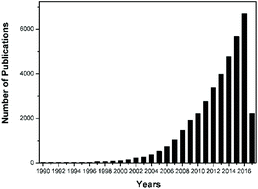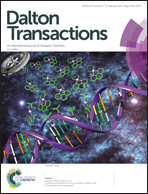Synthesis, functionalization, and applications of metal–organic frameworks in biomedicine
Abstract
Metal–organic frameworks (MOFs), also known as coordination polymers, have attracted extensive research interest in the past few decades due to their unique physical structures and potentially vast applications. In this review, we outline the recent progress in the synthesis, functionalization and applications of MOFs in biomedicine, mainly focusing on two promising, yet challenging areas, i.e., drug delivery and biosensing applications. A major challenge is the proper functionalization of MOFs with demanding properties suitable for biomedical applications. Extensive studies on MOFs in biomedicine have led to substantial progress in the control of key properties of MOFs such as toxicity, size and shape, and biological stability. Due to their flexible composition, pore size and easy functionalization properties, MOFs can be utilized as key components for the development of various functional systems, and their applications in drug delivery and biosensing are reviewed. Future trends and perspectives in these research areas are also outlined.

- This article is part of the themed collection: 2018 Frontier and Perspective articles


 Please wait while we load your content...
Please wait while we load your content...